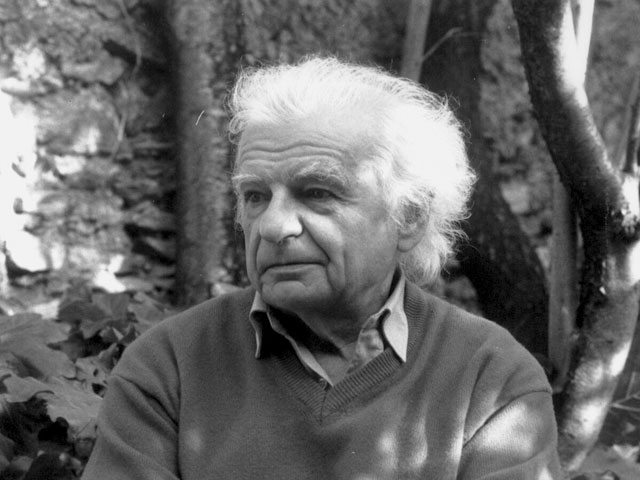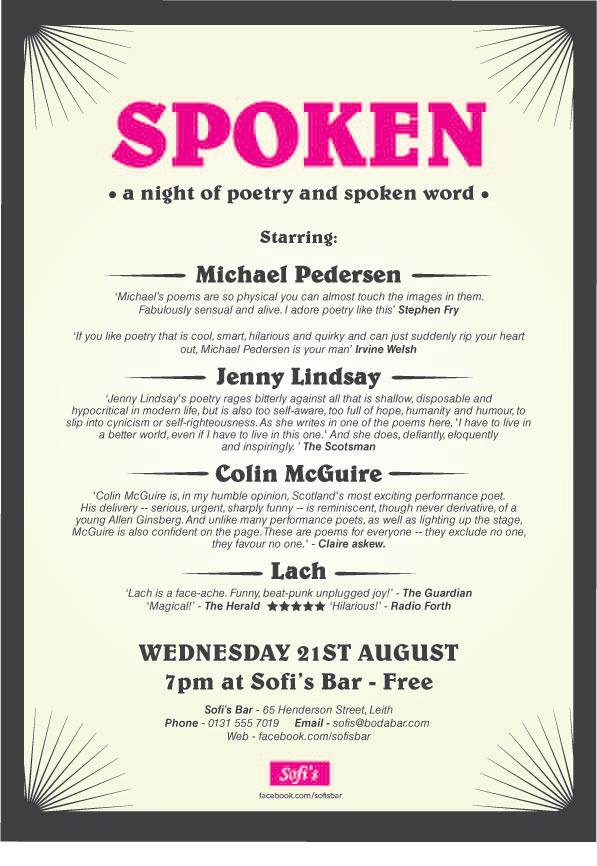Poems of Yves Bonnefoy 2 (trans. Ian Brinton & Michael Grant)
-Reviewed by Hayden Westfield Bell–
Poems of Yves Bonnefoy 2 translated by Ian Brinton and Michael Grant is the second collection of poems in the Bonnefoy series published by Oystercatcher Press. The second collection builds upon the success of the first; re-capturing Bonnefoy’s delicate, apocalyptic environments in a minimal style with a greater sense of tension, emphasis and intensity. Brinton and Grant’s translations are more confident and sure-footed in this collection than the last, the poems more varied in subject and tone, showing further understanding of Bonnefoy’s poetical approach and his characteristic use of language.
The opening poem ‘The Garden’ reintroduces us to images explored in the first collection; we see the resurrection of ‘stone’, ‘death’ and ‘a prow’s shadow’, these images of darkness juxtaposed with the optimism of ‘stars vault[ing] high garden walls’ and ‘pure wood’ jostles the mind between comfort and unease. Suddenly, ‘every road of the star-filled sky / Casts shadow’ throwing us not only into emotional doubt, but also physical insecurity – the landscape of the garden shifting before our eyes into seascapes and oceans, the trees ‘foam’ as the earth beneath us is ‘swept away’. ‘The magnet, you said’ teases us with complex and exotic images rendered in fragile lines; ‘their word begins at the trembling of our voices’, though the closing line of the first and last stanza edge into cliché with ‘eternal’ and ‘mankind’s own darkness’.
We move then to ‘Some Stones’, the first of a number of lengthier poems included in this volume, in which we are privy to the narrators mental anguish over the loss of a loved one. Beginning with a Bonnefoy-ian melancholy (‘traced lines of wind and disappointment […] my hair spread wider than a world’), the poem swells into self-reflexivity as the narrator probes the depths of his emotions; ‘What shall I have loved? […] Will the day keep the few words we had together / Safe in the day’s depths?’ though these angst-ridden passages can drift into sentimental cliché, ‘I loved the trust of those days so much / I watch over the charred words on the hearth of our hearts.’ Love, though, is a particularly difficult emotion for contemporary poets to engage with due its rich presence in traditional and romantic poetry, though this does not necessarily excuse the difficult sentimentalism. Nevertheless, ‘Some Stones’ is a rare poem in which the narrator is actively present within the text, and this presence adds an interesting dimension to the concepts largely kept at a distance in the other poems. These concepts that had begun to feel so alien through Brinton, Grant and Bonnefoy’s explorations/deconstructions suddenly co-exist with the voice of the narrator, giving the concepts a larger presence through association. The meditative, considered tone of the other poems is shaken by ‘Some Stones’, creating an unsettling (though welcome) effect on readers that have been following the Bonnefoy series from the first volume.
We return to the shorter poems; ‘The darkest face’, ‘Evening Word’ and ‘The Book, for Growing Old’ are particularly good examples of Brinton and Grant’s ability to translate Bonnefoy into minimal, fragile, yet deeply moving poems though I consider ‘I dislodge with my foot’ to be the stand-out poem of the collection; by drawing attention to the relationship between stones and ‘hidden lives […] scatter[ing] quickly, / Redeemed by the grass’. The other longer poems in Poems of Yves Bonnefoy 2, ‘The Dialogue between Anguish and Desire’ and ‘May This World Last’ feel a little unsteady in places, the messages of the poems being too clear in places – leaving little mystery for the reader. Whilst ‘The Dialogue between Anguish and Desire’ moves beyond the immediacy of its message into striking descriptions of ‘obscure gardens […] the afternoon / Was crimson’ ‘May This World Last’ seems to struggle to escape the message made clear in its title, though develops strength in its closing stanzas ‘summer / Will last no more than an hour / But may the hour we have be long / Like the river.’
Poems of Yves Bonnefoy 2 is a collection of vivid philosophical poems that investigate the complexity within the miniature and the minimal and how these impact and influence our being and sense of self. This comes across clearer in the shorter poems where the delicate language employed by Brinton and Grant is allowed to breathe, whereas, in the longer poems, the fragility of the language used often feels suffocated by the mass of the poem itself.




Reblogged this on Fox Chase Review.